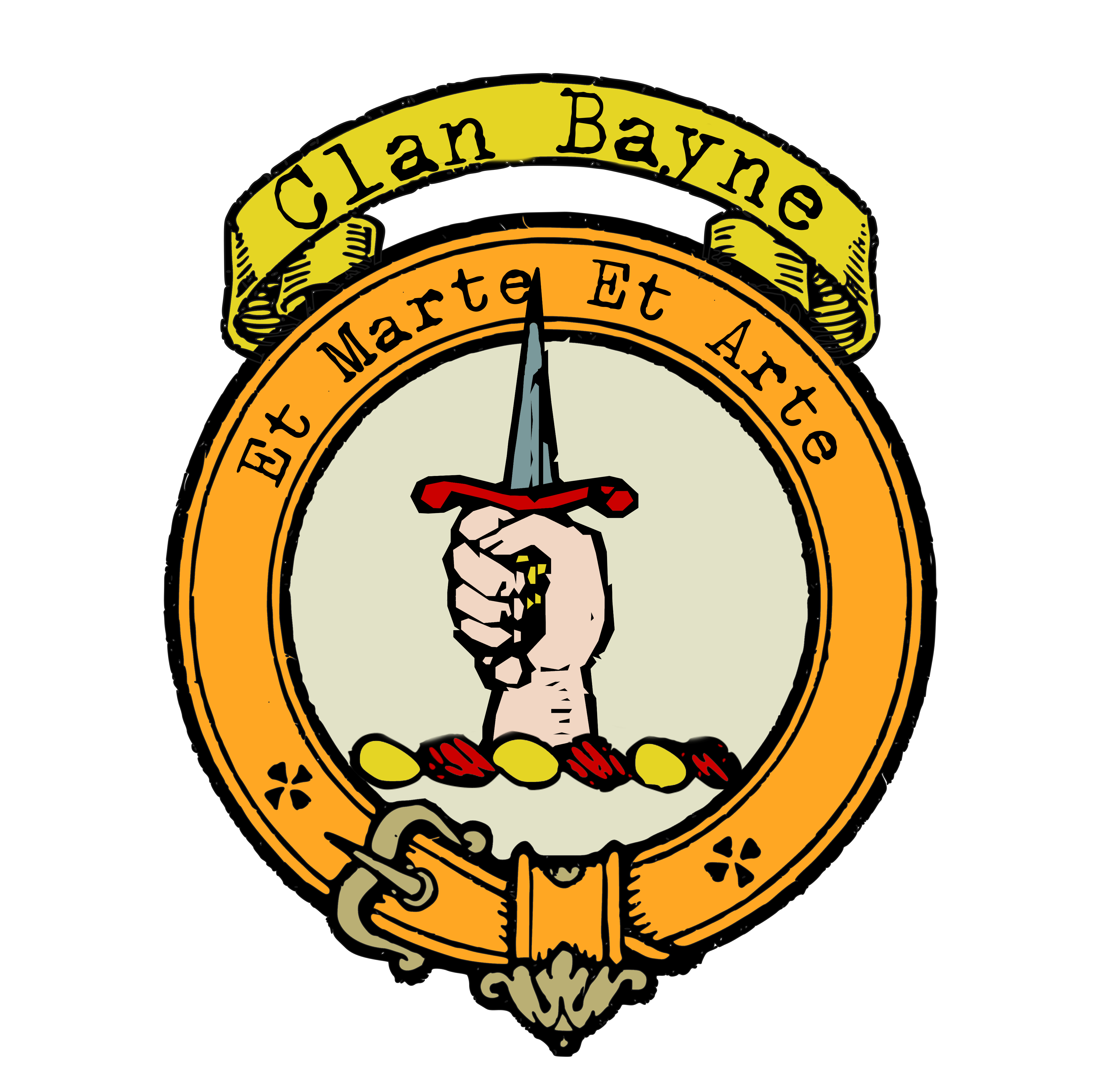Bayne Clan Crest
 |
CREST: A dexter arm armed grasping a dirk proper MOTTO: Et Marte Et Arte TRANSLATION: By strength and art VARIATIONS: Bain |
| The Bayne family, also known as Bain or Bane, is a minor noble family in Scotland with a rich and fascinating history. The family name is derived from the Gaelic word “Ban” which means fair and they are descendants of the Clan Mackay. | |
 Purchase @ Redbubble Purchase @ RedbubblePurchase @ Amazon.com Purchase @ Amazon.co.uk |
|
| Iye Mackay, who was born around 1210, was the first chief of the Clan Mackay. The Mackays were known for supporting King Robert the Bruce and fought in the Battle of Bannockburn in 1314. Angus Mackay, the 6th Chief of Clan Mackay, married a daughter of Torquil MacLeod of Lewis and had two sons, Angus Dow Mackay and Neil. Neil’s son, John Bain Mackay, was the founder of Clan Bayne.
John Bain Mackay changed his surname from Mackay to Bain, probably due to enmity within the Clan Mackay that resulted in the Battle of Drumnacoub. This battle involved two factions of the Clan and was fought between 1427 and 1433 in the far northwest of Scotland. Niel Nielson Mackay and Morgan Nielson Mackay were trying to take the Mackay lands from their kinsmen, Chief Angus Du Mackay, with the assistance of clansmen from the Clan Sutherland. Due to the conflict, John Bain moved from his homeland in the west of the county of Sutherland to the neighboring county of Caithness and dropped the surname Mackay. He married in 1436 and had four sons; John Bain, William Bain, Alexander Bain, and Donald Bain. Each of these sons founded Bain families in different areas of Scotland. The Bain family held their seat at Tulloch Castle for over 200 years until Kenneth, the ninth Bayne, sold the castle and estate to his cousin Henry Davidson in 1762. The Bain name is most commonly found in the Orkney Islands, the Shetland Isles, the Highlands (incorporating the historic counties of Caithness, Inverness-shire, Nairnshire, Ross and Cromarty, Sutherland, and small areas of Argyllshire and Morayshire), Aberdeenshire (including Kincardineshire and part of Banffshire) and Moray (also includes parts of Banffshire). In conclusion, the Bayne family, with its roots in the Clan Mackay and its rich history, is an important part of Scotland’s heritage. The Baynes have made a significant impact on Scotland’s history and their legacy continues to this day. |
|